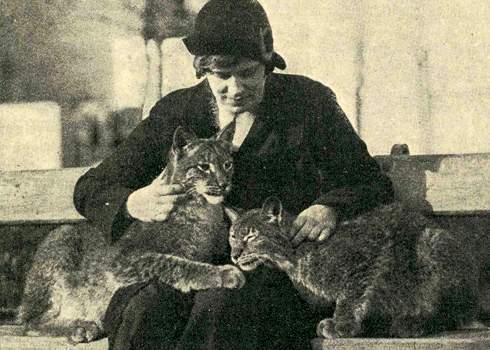Kindness as a Religion: A Moment with the Dalai Lama
At the Mind & Life Institute’s annual dialogue in Washington, D.C., the Dalai Lama—ever curious and playful—offered a simple credo: “My religion is kindness. My religion is compassion.” Those words resonated deeply as I reflected on years spent researching and writing about Antonina Żabińska, a Polish Catholic woman whose life embodied that credo during World War II.
The Warsaw Zoo as Sanctuary: Antonina & Jan Żabiński
Antonina and her husband, Jan Żabiński, director of the Warsaw Zoo, risked their lives to hide and protect more than 300 Jewish refugees. Many were smuggled out of the ghetto by Jan and sheltered in bombed-out animal enclosures—each refugee given the code name of the animal whose cage they used. Others lived inside the Żabińskis’ home on the zoo grounds, despite frequent patrols and visits from German soldiers.
Beyond people, the family also adopted orphaned animals—hyena pups, a piglet, lynx kittens, a badger, a cockatoo, a rooster, a muskrat—and worked to preserve a primeval forest on the Polish–Belarusian border, a refuge for rare species. Their household was a living testament to care across species.
Empathy in Action: Antonina’s Kinship with Animals
What first drew me to Antonina was her astonishing capacity for empathy—a radiant compassion for humans and other animals alike. She could imaginatively slip out of herself to perceive the world as a seal, elephant, or mother lynx—tracking scents, reading subtle movement, and inhabiting the sensory lives of other beings. This act of perspective-taking refreshed her mind, expanded her moral imagination, and strengthened her resolve to protect vulnerable lives.
Mirror Neurons and the Science of Compassion
Antonina’s gift for “mind-bridging” aligns with what neuroscience calls mirror neurons—circuits that help us read intentions and feelings. Empathy is a native human capacity, yet many animals also show sophisticated perspective-taking; even orangutans can pass tests that suggest layered social understanding. Antonina’s husband, a hard-nosed scientist, saw her as a mind-whisperer: animals responded to her with unusual trust, and people—refugees and even Nazi visitors—felt the calming safety of her attention.
Guests, Hospitality, and Moral Imagination under Occupation
In Antonina’s post-war reflections, household “guests with a small g”—the animals—were treated as other kinds of people, each with quirks yet always welcome. The “Guests with a capital G”—Jewish refugees—emerged after dark to share music (a nightly piano concert), conversation, and momentary relief. Jan led sabotage efforts; Antonina held space for play, wonder, humor, and innocence even as danger loomed. This was courage through hospitality—a moral stance that protected dignity and life.
Redefining Heroism: Subversive Compassion vs. Warrior Ideals
We often equate heroism with combat. Antonina’s story urges a broader view: civilians can commit radical acts of compassion, quietly defying oppression through sanctuary, care, and culture. Recognizing these subversive feats of empathy helps counter our fixation on the worst in human nature and elevates the everyday bravery of “ordinary” people who risk everything for strangers.
A Day of Extremes: From Mind & Life to the Holocaust Museum
That same weekend in D.C., I visited the United States Holocaust Memorial Museum to study artifacts and research. The day stretched between two poles of human behavior: the science and language of compassion on one end, and the horrors of genocidal cruelty on the other. Standing in that contrast, I felt a clarifying awe for our species—the capacity for diabolical harm and for high-wire empathy and altruism. The long years of work on the book dissolved into one horizonless moment of insight.
Why This Story Matters Now: Cultivating Moral Courage
Antonina believed we can feature the best of our animal nature while rising above the worst. Empathy—trained through attention, imagination, and practice—can rewire fear and reword hatred. Her life suggests a path forward: expand our circle of care, practice hospitality, and protect the vulnerable—human and nonhuman—through deliberate acts of kindness.






